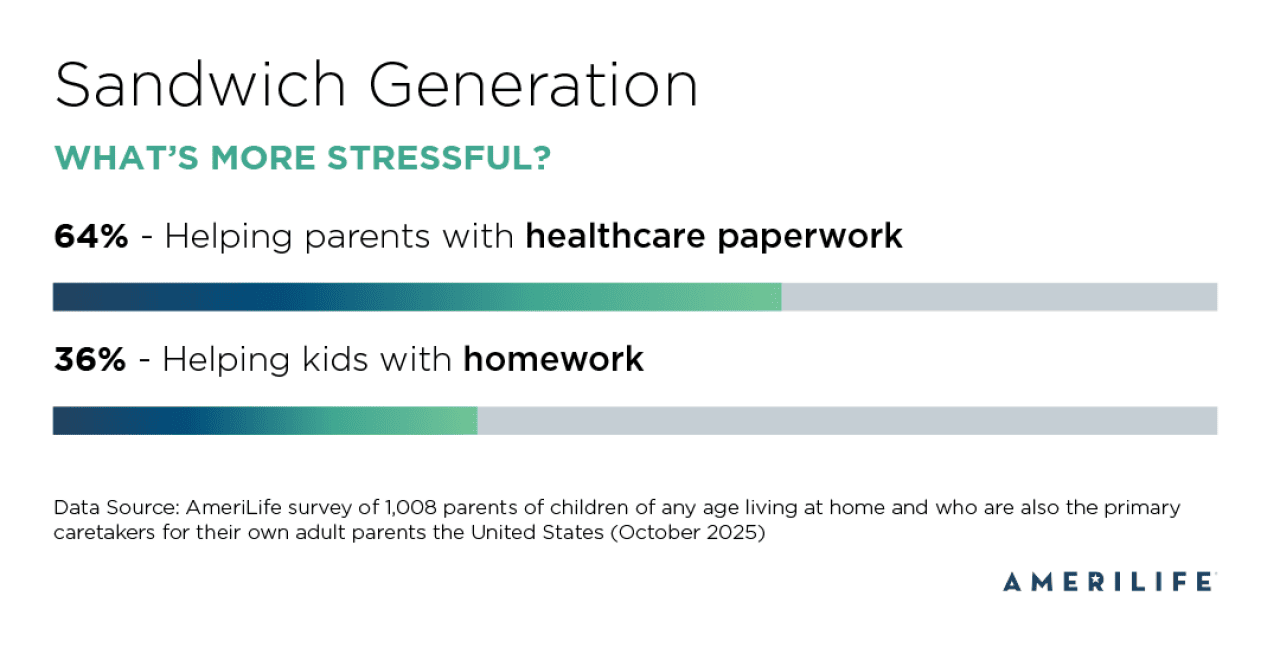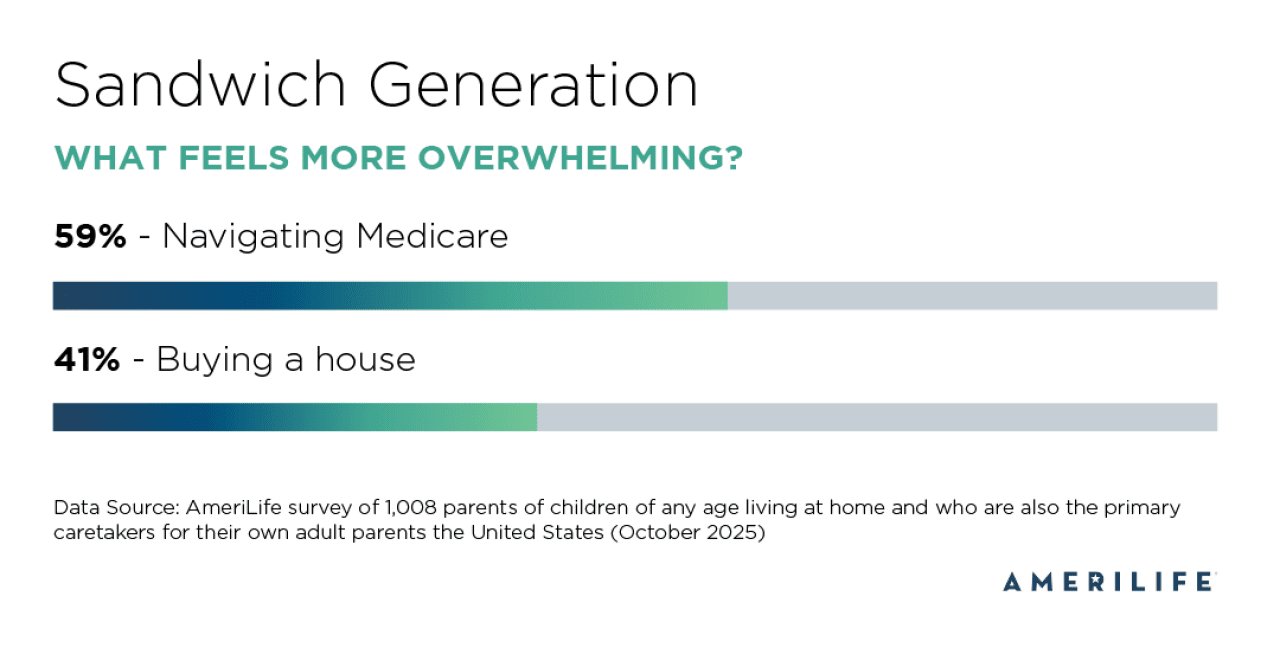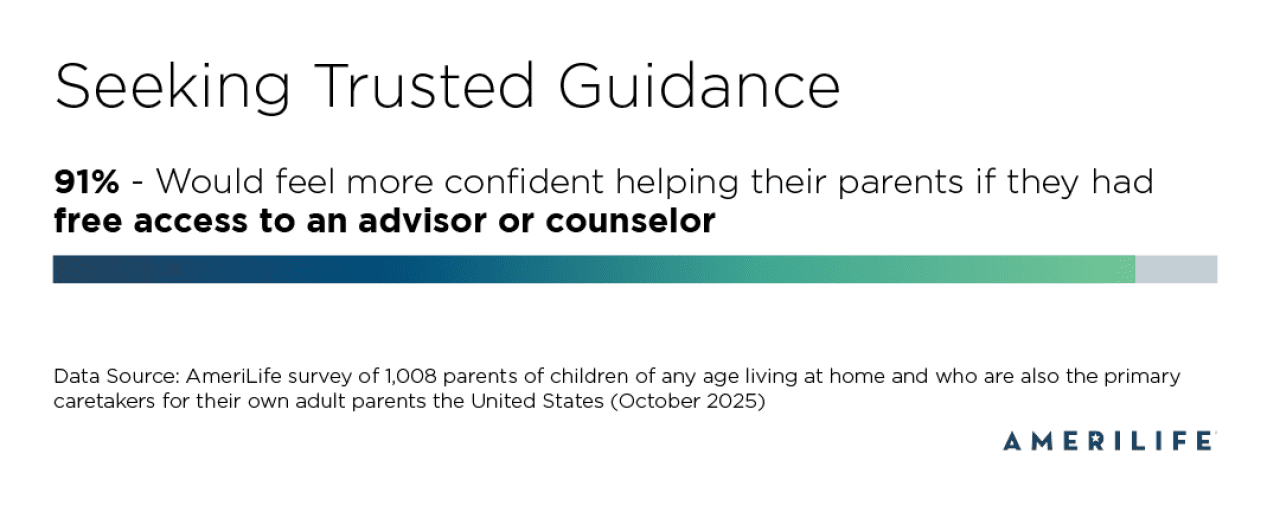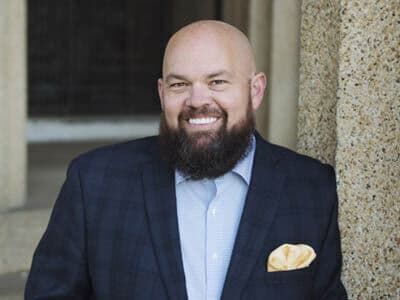The new balancing act: Midlife adults are now caring for their kids and aging parents
Lifestyle

Audio By Carbonatix
11:00 AM on Friday, November 21, 2025
By Tiffany Miller for AmeriLife, Stacker
The new balancing act: Midlife adults are now caring for their kids and aging parents
By 7 a.m., the house is already in overdrive. Lunches are packed, emails are waiting, and between drop-offs and deadlines, there’s another call to make, this one for Mom’s doctor. For millions of Americans in their 40s and 50s, this is daily life as part of the Sandwich Generation, balancing kids, careers and caregiving.
And now, with Medicare open enrollment underway through Dec. 7, that balancing act is even more complicated. Many midlife parents are managing not just their own and their children’s health coverage but also guiding aging parents through complex medical and financial decisions.
A new survey from AmeriLife, an insurance and financial services organization, finds that 3 in 5 midlife adults now manage at least part of a parent’s healthcare. Many say that includes reviewing insurance options, handling medical bills and navigating Medicare choices that have become increasingly complex.
Caregivers Caught in the Middle
Nearly two in three respondents said they often or always feel like their parents’ healthcare manager, while more than half report moderate to high stress from helping aging loved ones navigate medical or financial paperwork. The emotional weight is significant, and it does not just affect free time. Many said their caregiving duties have made it harder to focus at work or keep up with their own families’ needs.
When asked what is more stressful, helping kids with homework or helping parents with healthcare paperwork, most chose their parents’ paperwork. The daily mental load of juggling both ends of family life is leaving many stretched thin.

The time commitment is just as demanding. Nearly 4 in 5 respondents said caring for a parent has required them to take time off work or adjust their schedules, and two-thirds said it has affected their overall work-life balance. The overlap between professional and personal responsibilities leaves many feeling they’re falling behind on both fronts.
Confusion Around Medicare Choices
For those trying to help parents enroll or adjust Medicare plans, confidence is low. More than 2 in 5 said they would feel totally lost trying to explain the differences in Medicare plans, and many compare the process to major life decisions, like buying a house.

Most caregivers rely on online searches or family advice rather than licensed professionals when making these decisions, often leading to more confusion and second-guessing.
Matthew Centi, managing partner at Tampa-based Healthcare Solutions, an independent agency that helps seniors review and select coverage options, said he sees this kind of frustration every day. “People just want to help their parents make the right choice, but it can feel overwhelming to sort through so many options. A little guidance can make a big difference in helping families feel confident about the decisions they are making,” he said.
That sentiment echoes the survey findings, which showed that many caregivers are not confident their parents are enrolled in the best plan for their needs, underscoring how complex and confusing the process can be.
The Strain Extends Beyond Time
The demands of caregiving often come with a financial cost. Many respondents said they have cut back on personal spending, including their own retirement contributions, to help cover parents’ healthcare or living expenses. Others reported spending hundreds of dollars each month from their household budgets on their parents’ needs.
In fact, 3 in 5 said they now spend more each month supporting parents than they do on dining out, streaming services or childcare.
Seeking Trusted Guidance
Despite these challenges, most say they would feel more confident with access to professional guidance and reliable support to help families navigate the uncertainties of caregiving.

For the Sandwich Generation, the reality is clear. They are doing double duty, keeping their families on track while trying to stay afloat themselves.
This story was produced by AmeriLife and reviewed and distributed by Stacker.







